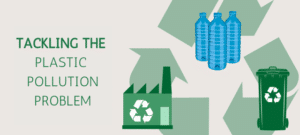The damage plastic does to the environment and the importance of plastic recycling
Plastic pollution has been at the forefront of our minds for years now. It’s an issue that’s rife in every country but it’s emerged recently that Britain is the second biggest per capita producer of plastic waste in the world (source: The Guardian). The tide needs to turn and a big push on plastic recycling in the UK could help save our planet. You may already be aware of DCW Polymers, a leading plastics recycling and reprocessing plant in Exeter, Devon. We collect waste plastic, turn it back into high-quality plastic granules and sell it back into the manufacturing industry. Materials that end up at DCW Polymers never go to landfill so if you are on the hunt for ‘plastic recycling near me’, do bear us in mind. In this blog, we explore just some of the reasons why we need to do more to recycle plastic and what the future for this waste stream currently looks like…
How does plastic harm the environment?
Have you ever wondered what all the fuss is about? Why is plastic so harmful to the environment and what’s the worst that can happen if we don’t reduce the amount of plastic waste we generate?
It all begins with the sheer amount of plastic waste that is produced. Since polypropylene was invented in 1951, plastic has been widely used throughout the manufacturing industry. Popular due to its resistance to chemicals, high flexibility, durability and low cost, polypropylene is ideal for a variety of packaging and products. As a result of its popularity, the UK generates an incredible 2.2 million metric tons of plastic packaging waste each year (source: Statista). So, where does all of that plastic waste go? After China introduced a ban on foreign waste in 2018, Malaysia has become the UK’s main plastic waste export destination. The practice of shipping plastic waste abroad brings with it a host of problems for the environment.
Dr. Kevin Bridgen, Senior Scientist from Greenpeace Research Laboratories, said: “When plastics are exported from one country to another, they can bring with them a wide range of hazardous chemicals. Improper storage and treatment can later release these chemicals into the local environment and burning can even generate new hazardous chemicals” (source: Greenpeace).
Plastic waste not only has a detrimental effect on the earth’s atmosphere, it has a serious impact on marine life too. You’re probably familiar with the harrowing images of underwater creatures eating or getting trapped in plastic. It’s something the production team of Blue Planet II experienced first-hand back in 2018. “For years, we thought that the oceans were so vast that nothing we could do could have an effect upon them. But now we know that was wrong” said David Attenborough in the last episode of the award-winning series.
An incredible 8 million tonnes of plastic enter the ocean every year where it can be lethal (source: YouTube). Creatures such as fish, sea turtles and whales can become entangled in plastic waste or ingest it which can cause suffocation, starvation and drowning. Research has shown that half of sea turtles worldwide have ingested plastic and the waste kills up to a million seabirds each year (source: PEW).
You may wonder how plastic waste ends up in the ocean when you don’t directly put it there. When you throw something into your general waste bin, it begins its journey to a landfill site. With plastic being such a light wight material, it can easily be blown away and end up down the drain or in a river where it will eventually be dumped in the ocean. Littering is another culprit. Drop a plastic bag or wrapper on the street and rainwater will wash it away, into the drain and you guessed it, into the ocean (source: WWF).
Plastic is extremely hard to break down as it doesn’t biodegrade like other materials. The organisms that break down organic materials such as food and garden waste have evolved to attack certain types of bonds that are common in nature. The bonds in polypropylene are so complex that organisms simply don’t recognise this material (source: LiveScience). Plastic will decompose eventually, but it can take up to 1,000 years for it to decompose at landfill sites with plastic bottles alone taking 450 years or more (source: Daily Sabah).
So, what can we do to stop the damage plastic waste causes?
The future of plastic recycling
There’s a strong appetite in the UK for change when it comes to plastic pollution. As mentioned, Malaysia is the UK’s main plastic waste export destination but a recent survey showed that 85% of respondents believed that the UK should deal with its own plastic waste rather than shipping it abroad (source: Statista). It is also hoped that the UK Government will take some responsibility for turning the tide on plastic waste. In November 2020, Lord Goldsmith revealed that Britain will throw its weight behind a new global agreement which will seek to tackle the plastic pollution crisis. As the Minister for Pacific and the Environment, Lord Goldsmith has said that a UN treaty on plastics is needed similar to the Paris agreement on the climate crisis (source: The Guardian). It’s a promising step in the right direction and we hope that it will lead to an eventual end to plastic pollution.
We adopt a circular approach to plastic waste at DCW Polymers. As the only plastics recycling plant south of Bridgewater, we provide a plastic waste recycling service to South West businesses, collecting a variety of waste products. From plastic pallets to wheelie bins, fuel tanks to kayaks, we recycle bulky plastics at our specialist plant in Exeter. Our state-of-the-art machinery is capable of processing in excess of 100 tonnes of plastic a week. It turns waste plastic back into high quality plastic granules which go back into the manufacturing process and reduce the need for virgin plastic products to be manufactured.
We’re always looking at ways in which we can encourage businesses and individuals to recycle their plastic waste. Recently, we launched our Recycle & Raise appeal which asks the public to donate plastic tubs, such as the confectionary tubs many households have at Christmas, for recycling to raise funds for Dartmoor Zoo and mental health charity, Mind. Last year, the campaign raised over £1,200 for Dartmoor Zoo after recycling over 15,000 confectionary tubs and selling the plastic granules back into the manufacturing industry. We hope to smash that record this year. Click here to find out more about this year’s campaign and where you can donate your plastic tubs.
If you’d like to know more about how we manage and recycle plastics at DCW Polymers, click here or call 01392 535353.
The damage plastic does to the environment and the importance of plastic recycling Read More »










